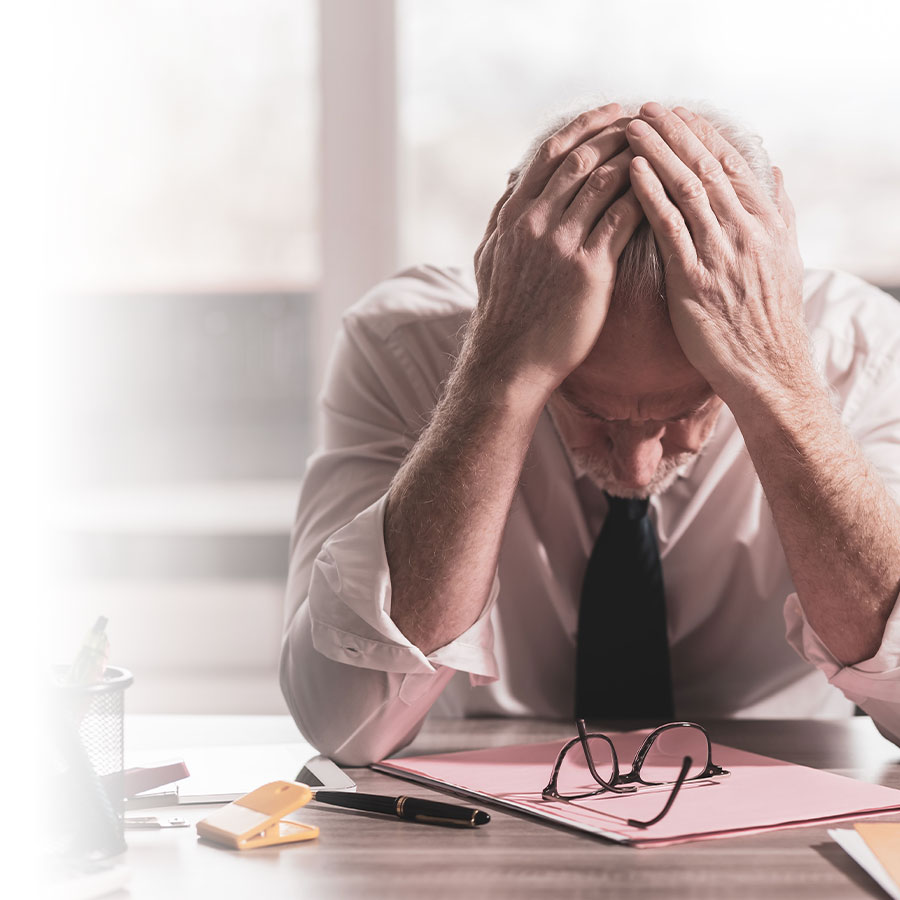The term occupational burnout is quite common in today's language, but the condition remains somewhat unknown. Learn more about occupational burnout.
Stress—and occupational burnout
In industrialized countries, stress is part of the work world reality. The constant quest for performance and success cause some circles and individuals to burn the candle at both ends. This has undeniable repercussions on productivity and on the health and well-being of workers. Caution, people who work in the "healthiest" work environments are not immune to a condition like occupational burnout.
Occupational burnout, commonly called burnout, represents real stakes that can sometimes have serious consequences on workers, businesses, and society. It is an insidious process that develops over time. Still somewhat unknown, it is the subject of considerable interest and studies by the medical community and by the professional world.
A problem that is difficult to define
Burnout remains difficult to accurately define. For now, it is not a medical term or an officially recognized disease. Therefore, there are several different definitions and interpretations. Burnout is set apart from depression in that it is directly related to work.
In simple terms, it involves physical, emotional, and intellectual fatigue that results from stress felt by an individual placed in a situation where he/she is unable to meet constant demands. Thus, the individual is unable to function normally in the work environment, which leads to a number of difficulties.
Signs and symptoms
In order to avoid getting caught in the burnout loop, it is important to be aware of the manifestations. There are a number of typical signs and symptoms. Here are a few:
- sleep problems
- decreased energy, interest, and motivation regarding work
- deep feeling of fatigue
- concentration and memory problems
- decreased feeling of effectiveness and skill
- deterioration of relationships
- loss of self-esteem
- feeling of loss of control, and
- withdrawal
Prevention and detection
The principle of "an ounce of prevention is worth a pound of cure" relates quite well to burnout. Several steps can be implemented, both individually or collectively, to reduce chronic stress and factors likely to lead to burnout. Fortunately, more and more individuals and employers are aware of the stakes and risks related to burnout, and are focussing on preventive measures.
If you think you recognize the manifestations of burnout, begin by seeing a doctor and obtaining a diagnosis. If you have noticed them in someone else, voice your concerns and encourage him/her to see a doctor. Early detection of the problem makes it much easier to manage and recover.
"Treatment"
Unfortunately, there is no miracle cure to recover from burnout once it is established. Recovery requires time, working on oneself, and consulting professional resources. In many cases, emphasis will be put on temporary work cessation to enable the person to re-energize and restore health.
Each person affected by burnout should benefit from a personalized empowerment plan, which, ideally, should include several complementary strategies, including:
- therapy
- a change of environment
- reassignment or re-evaluation of position or tasks
- change of lifestyle, and
- use of medication
Mental health—day to day care
Mental health is a valuable gift. Here is some advice to help you to take care of it.
- Set aside some time for yourself to rest, for leisure, and the people you care about. It's up to you to establish your priorities. Put your energy in the right place!
- Focus on proper sleep hygiene.
- Exercise regularly. Choose activities that you enjoy and that allow you to re-energize. Put emphasis on fun before performance.
- Learn to delegate, both at work and at home. People who want to do everything themselves are more prone to burnout.
- Learn to say "no" and to give yourself priority.
- Accept that everything is not perfect. Replace demands by permissions, both for yourself and for others.
- Express your discomfort, wishes, and concerns relating to work. Surround yourself with people you can trust, in whom you can confide, and who can help you.
- Consider a therapeutic process for yourself with the help of a professional (psychologist, psychotherapist, coach, etc.).
Remember that your pharmacist is always there to help you with any questions related to health and well-being!


